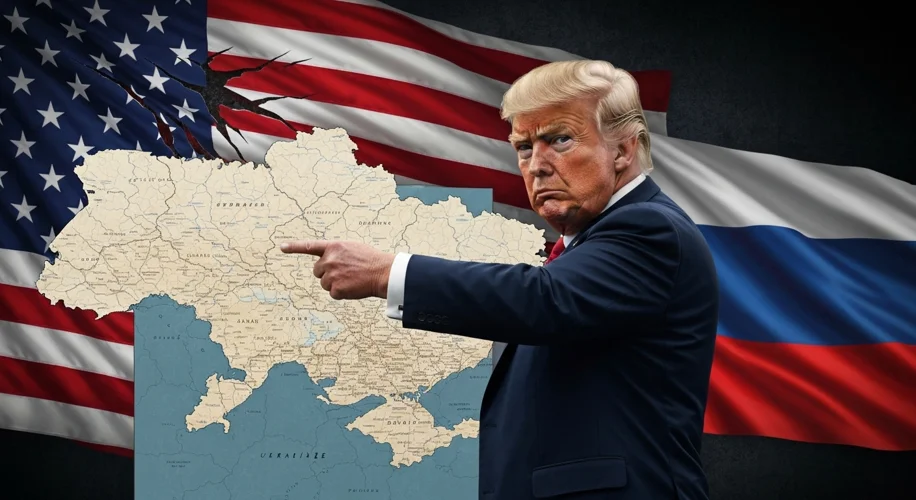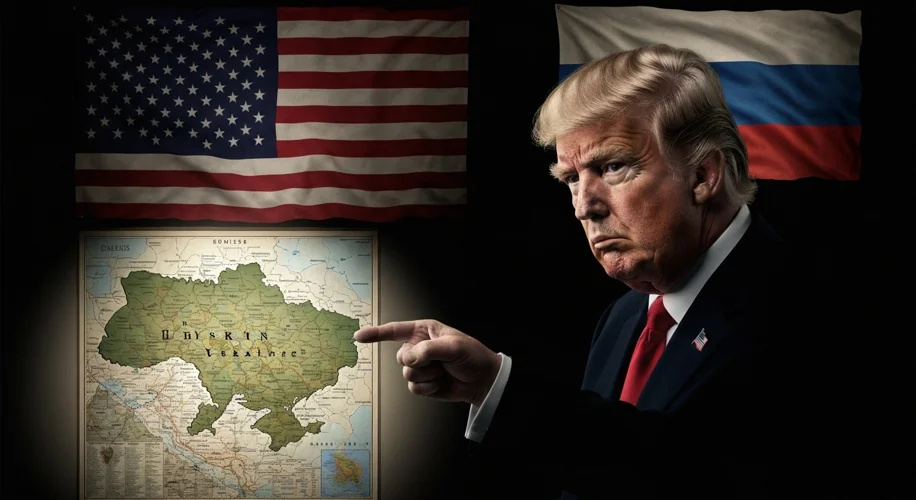In the complex tapestry of international relations, a leader’s pronouncements can echo with the weight of history, shaping perceptions and altering the course of events. For years, the world has watched the ongoing conflict between Russia and Ukraine, a brutal invasion that has sent shockwaves across the globe. On September 15, 2025, a significant shift occurred in the American political landscape as former President Donald Trump, a figure whose foreign policy often defied conventional norms, finally labeled Russia the “aggressor” in the war on Ukraine. This declaration, coming after a prolonged period of nuanced or absent commentary on the nature of the conflict, marks a pivotal moment, drawing parallels to historical instances where decisive language from leaders clarified intentions and galvanized alliances.
Throughout history, leaders have grappled with the immense responsibility of defining aggression and condemning unwarranted conquest. Consider the lead-up to World War II, where the world’s hesitant condemnation of Nazi Germany’s territorial ambitions allowed the conflict to escalate. The initial reluctance to label Hitler’s actions as outright aggression, often couched in terms of appeasement or strategic negotiation, ultimately emboldened further incursions. It was only when the full scope of the threat became undeniable that leaders like Winston Churchill unequivocally denounced the aggressor, rallying a beleaguered Britain and forging a coalition that would ultimately confront the Nazi regime.
In the context of the Ukraine war, Trump’s statement arrives at a critical juncture. While many international leaders and organizations had long designated Russia as the aggressor, Trump’s consistent reluctance to employ such direct language had fueled speculation and, at times, concern among allies. His previous statements often focused on the cost of the conflict, the need for negotiation, or even expressed a degree of empathy for Russian President Vladimir Putin. This made his September 15th declaration all the more notable. It suggests a potential recalibration of his stance, or perhaps a response to the enduring realities of the battlefield and the humanitarian crisis unfolding in Ukraine.

For ordinary citizens observing these geopolitical shifts, the terminology used by influential figures carries immense weight. When a leader with Trump’s global profile finally adopts unambiguous language, it can resonate with populations at home and abroad. It can validate the experiences of those directly affected by the conflict, such as the Ukrainian people who have endured years of bombardment and displacement. It also signals a potential shift in diplomatic pressure and the likelihood of sustained international support for Ukraine’s sovereignty and territorial integrity.
The historical precedent for such declarations is clear. During the Cold War, the consistent labeling of Soviet expansionism as aggression by Western leaders was instrumental in maintaining a united front against what was perceived as a global threat. Similarly, the post-World War II international order was built, in part, on the principle of collective security against unprovoked attacks. Trump’s statement, therefore, can be seen as a re-alignment with these foundational principles, even if it arrives later than many might have expected.
The impact of this declaration is likely to be multifaceted. Domestically, it may appease some of his critics who have long urged him to take a stronger stance against Russian aggression. Internationally, it could bolster the confidence of Ukraine’s allies and potentially influence future diplomatic negotiations or military aid packages. However, the long-term consequences will depend on whether this statement is followed by concrete actions and a sustained commitment to the principles it espouses. History teaches us that words, while powerful, are most impactful when they are backed by deeds.
Ultimately, Trump’s belated labeling of Russia as the aggressor in the Ukraine war is a development that warrants historical reflection. It underscores the complex interplay between political rhetoric, international relations, and the enduring human cost of conflict. As we continue to navigate the turbulent currents of global affairs, understanding these moments of clarity, however delayed, offers valuable insights into the forces that shape our world.

